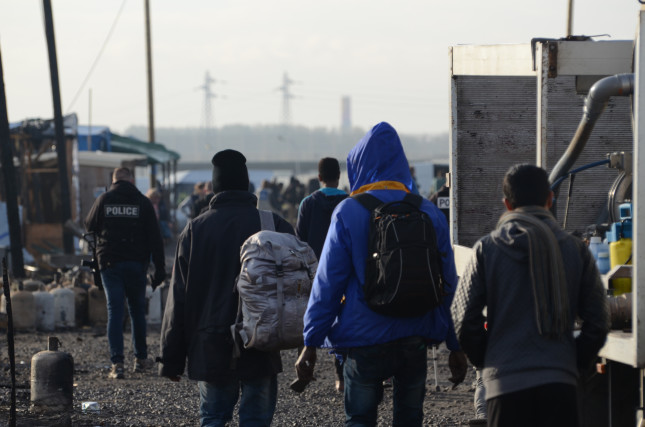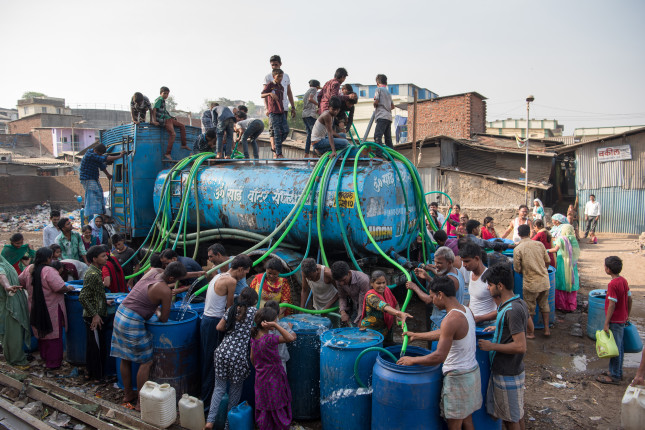-
ECSP Weekly Watch | August 28 – September 1
›
A window into what we are reading at the Wilson Center’s Environmental Change and Security Program
Carbon Markets: One Sheikh’s Interest in Africa’s Resources
Why has a company in the United Arab Emirates (UAE) taken an interest in Africa’s forests? Sheikh Ahmed Dalmook Al Maktoum ‘s company, Blue Carbon, recently initiated deals with several countries (Liberia, Tanzania, Zambia, and Zimbabwe) that exchange management of African forests in these nations for carbon credits.
-
Competing Imperatives? Migration and the African Continental Free Trade Area
›
African informal migration to Europe raises human insecurity issues for states in both Africa and Europe. This challenge was underscored almost a decade ago by the arrival of about a million migrants and refugees on the shores of Europe.
-
ECSP Weekly Watch | August 21 – 25
›
A window into what we are reading at the Wilson Center’s Environmental Change and Security Program
Deforestation Dynamics in Colombia: The Role of Armed Groups
A 29% drop in deforestation in Colombia in 2022 was labeled as a victory for President Gustavo Petro. Yet there is another reason behind the decrease. Armed groups, such as the Estado Mayor Central (EMC), have imposed logging bans in areas under their control, and levy fines amounting to 251 dollars per hectare.
-
Q&A: Dr. Jeff Colgan on the Energy Security Impacts of Russia’s War in Ukraine
›
Dr. Jeff Colgan is Director of the Climate Solutions Lab at the Watson Institute for Public and International Affairs at Brown University, and a keen observer of the interplay between energy and security. His new white paper, “Letting Europe’s Energy Crisis Go to Waste: The Ukraine War’s Massive Fossil Fuel Costs Fail to Accelerate Renewables,” co-authored by Alexander S. Gard-Murray and Miriam Hinthorn, offers a new window into how an event with the broad potential to reshape energy policy to more sustainable ends has failed to meet the moment. Colgan spoke to us about the institute’s new research and the lessons learned about conflict’s influence on the energy transition more than a year into the Ukraine conflict.
-
ECSP Weekly Watch | August 14 – 18
›
A window into what we are reading at the Wilson Center’s Environmental Change and Security Program
Thirst for Relief: Prolonged Drought Intensifies Afghanistan’s Humanitarian Crisis
Afghanistan is the world’s sixth most affected country by climate-related threats—and its present acute challenge is water scarcity, intensified by climate change. The country is heavily reliant on agriculture, which makes up a third of its GDP.
-
Charting Complex Currents: The Qush Tepa Canal and Central Asia’s Water
›
The riparian states of the Aral Sea Basin are experiencing growing water demands, land, and environmental degradation, aging and inefficient infrastructure, and the rapid melting of glaciers. These increasing challenges are compounded by the lack of an effective transboundary water governance system.
-
Tanker Water Markets: A Path to Achieving SDG 6
›
Nearly two-thirds of the world’s population experiences some level of water scarcity—and an estimated one billion urban residents face unreliable drinking water supplies. This global water crisis not only has been recognized by the United Nations, but also prioritized for action as Sustainable Development Goal (SDG) 6: “Access to Water and Sanitation for All”.
-
ECSP Weekly Watch | July 24 – 28
›
A window into what we are reading at the Wilson Center’s Environmental Change and Security Program
Fixing the World’s Broken Food Systems
The United Nations summit on the state of the world’s food systems took place in Rome, Italy, this week, building on the work of a previous convening in 2021. The meeting focused on the environmental impact of agriculture and making food production more sustainable.
Showing posts from category development.








